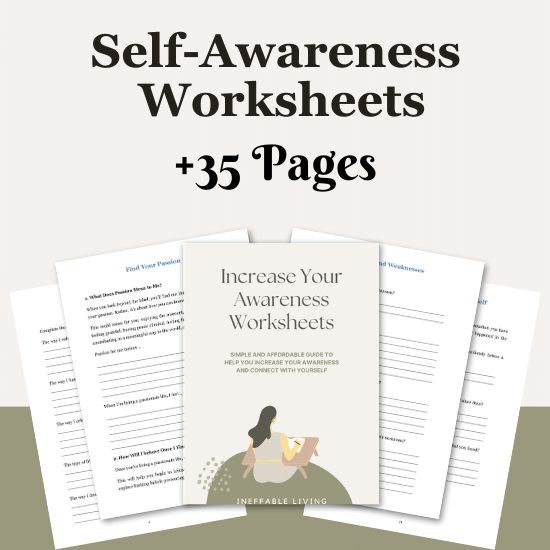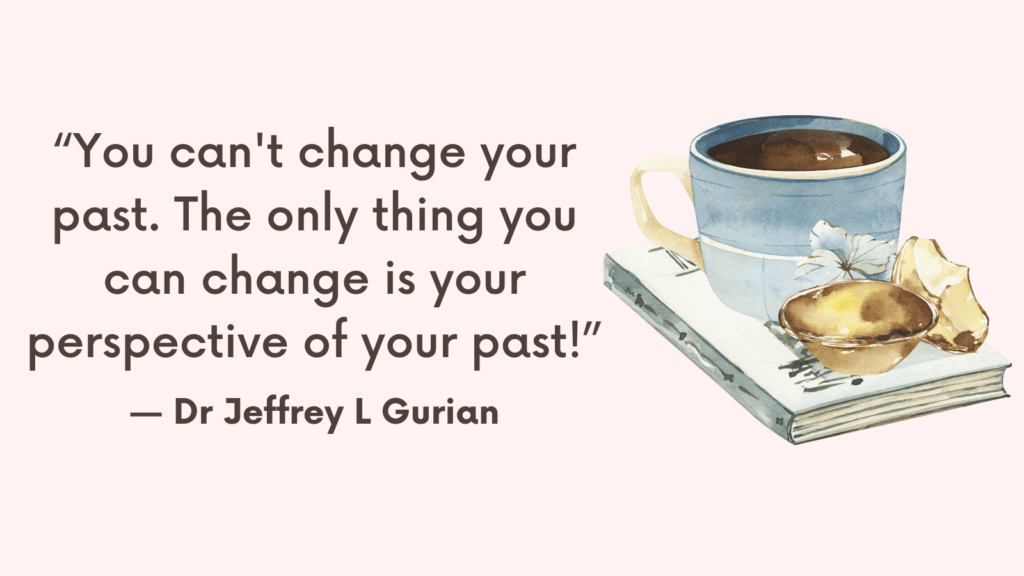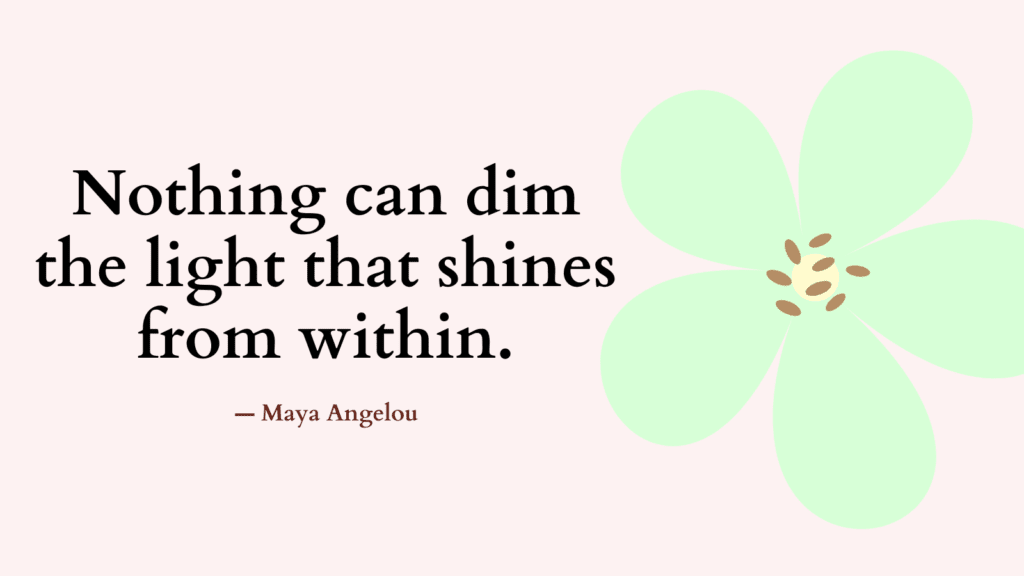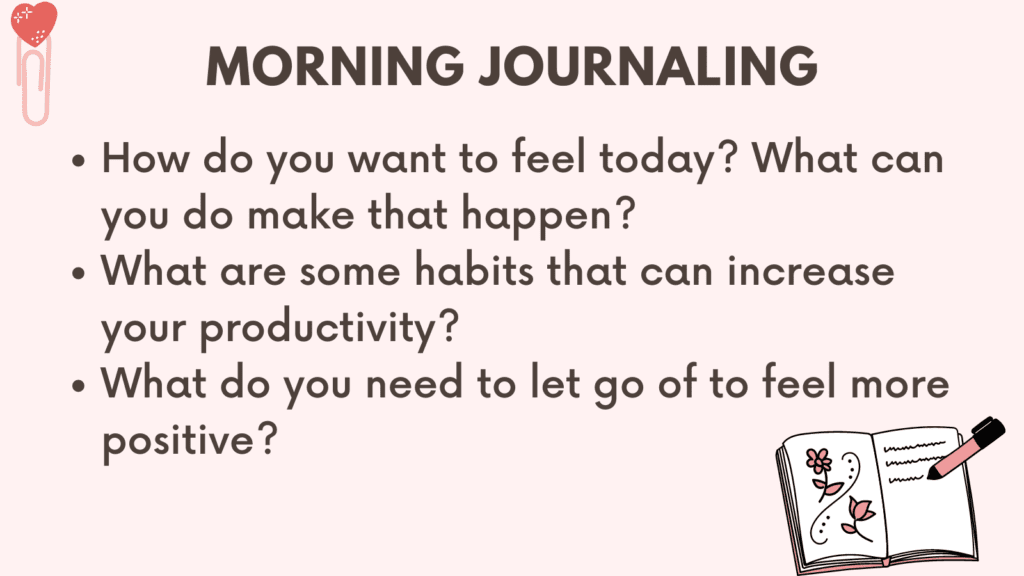This post contains a list of self therapy questions to ask yourself.
Self Therapy Questions To Ask Yourself
Here are 50 therapy questions that you can ask yourself to deepen your self-understanding and foster reflection on various aspects of your life:
1. What do I need in this moment?
2. How am I feeling physically, emotionally, and mentally right now?
3. What are my core values, and how do they influence my decisions and actions?
4. What are my strengths and areas for growth?
5. What self-care practices nourish and rejuvenate me?
6. How do I cope with stress and challenges?
7. What brings me joy and fulfillment?
8. What are my long-term goals and aspirations?
9. How do I define success and happiness in my life?
10. Whom do I trust and seek support from when facing difficulties?
11. How do I handle conflict and navigate difficult conversations?
12. What fears or anxieties do I need to address or overcome?
Related: Top 23 Journal Prompts For Self Growth
13. What patterns or habits do I want to change or improve?
14. Am I living in alignment with my authentic self?
15. How do I maintain a healthy work-life balance?
16. What motivates and drives me to pursue my passions?
17. How do I prioritize and manage my time effectively?
18. What boundaries do I need to set in my relationships and daily life?
19. What unresolved emotions or experiences do I need to address?
20. How do I cultivate mindfulness and presence in my daily routine?
21. What impact do my thoughts and beliefs have on my emotions and behaviors?
22. How do I practice self-compassion and self-forgiveness?
23. What role does gratitude play in my life?
24. How do I navigate transitions and adapt to change?
25. What activities or hobbies allow me to express myself and find flow?
26. How do I nurture and cultivate meaningful connections with others?
27. What does it mean to live with intention and purpose?
28. How do I manage and regulate my emotions effectively?
29. What coping strategies do I rely on during challenging times?
Related: Best 35 Journal Prompts To Get To Know Yourself
30. What unresolved past experiences continue to impact my present well-being?
31. How do I foster a sense of belonging and community in my life?
32. What does healthy communication look like in my relationships?
33. How do I confront and overcome self-limiting beliefs?
34. What small steps can I take today to move closer to my goals?
35. How do I practice resilience in the face of setbacks?
36. What self-imposed pressures or expectations do I need to release?
37. How do I express and process my emotions in healthy ways?
38. What barriers exist between where I am and where I want to be?
39. How do I identify and honor my needs in relationships and interactions?
40. How do I define and create a sense of home and comfort in my life?
41. What role does self-acceptance play in my overall well-being?
Related: Lack Of Self Awareness: 5 Signs & 5 Tips On How To Increase Self-Awareness
42. How do I navigate feelings of loneliness and isolation?
43. What unmet needs or desires do I need to address?
44. How do I foster a sense of curiosity and openness in my life?
45. What negative thought patterns or self-talk do I want to challenge and change?
46. How do I find balance between giving and receiving in my relationships?
47. What unresolved conflicts or grievances do I need to address?
48. How do I prioritize my mental health and emotional well-being?
49. What brings me a sense of peace and tranquility?
50. How do I define and cultivate a sense of purpose and meaning in my life?
Engaging in self-reflection through these questions can provide valuable insights into various facets of your life and help guide your personal growth journey.
Related: Am I Emotionally Unavailable Quiz
How to Use Self Therapy Questions?
1. Establishing a Supportive Environment
Before engaging in self-therapy questions, it’s important to create a supportive and non-judgmental environment.
Find a quiet and comfortable space where you can focus without distractions.
Consider setting aside dedicated time for self-reflection, allowing yourself to be fully present in the process.
2. Selecting Appropriate Questions
Choose self-therapy questions that resonate with your current needs, aspirations, and challenges.
Reflect on areas of your life where you seek clarity, growth, or resolution.
Tailor the questions to address specific aspects of your well-being, relationships, goals, and emotional experiences.
3. The Art of Journaling
One effective way to engage with self-therapy questions is through journaling.
Write down the questions and take the time to articulate your responses thoughtfully.
Journaling allows you to capture your thoughts and reflections, providing a tangible record of your self-exploration journey.
4. Embracing Openness and Honesty
Approach the self-therapy questions with an open and honest mindset.
Embrace vulnerability and authenticity as you delve into your inner world.
Be willing to confront uncomfortable emotions and truths, recognizing that this openness is fundamental to personal growth.
5. Engaging in Active Reflection
When responding to self-therapy questions, engage in active reflection.
Take the time to ponder each question deeply, allowing yourself to explore different angles and perspectives.
Resist the urge to rush through the process, and instead, cultivate a sense of curiosity and contemplation.
Related: Top 25 Self Reflection Journal Prompts
6. Exploring Root Causes and Patterns
Self-therapy questions can help you uncover underlying causes and patterns in your behavior and emotions.
Use the questions to investigate the origins of certain beliefs, habits, or emotional responses.
By understanding these root causes, you can work towards meaningful change.
7. Applying Self-Insights to Daily Life
Integrate the insights gained from self-therapy questions into your daily life.
Consider how your reflections can inform your choices, interactions, and overall well-being.
Use the newfound awareness to guide your actions and cultivate positive change.
Related: Top 21 Healing Journal Prompts To Support Your Healing Journey

Conclusion
While self-therapy questions can be a powerful tool, it’s important to recognize their limitations.
There may be times when seeking the support of a therapist or counselor is beneficial, especially when exploring deep-seated trauma, complex emotional challenges, or significant life transitions.



